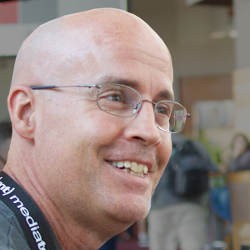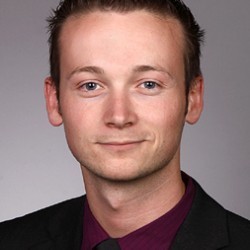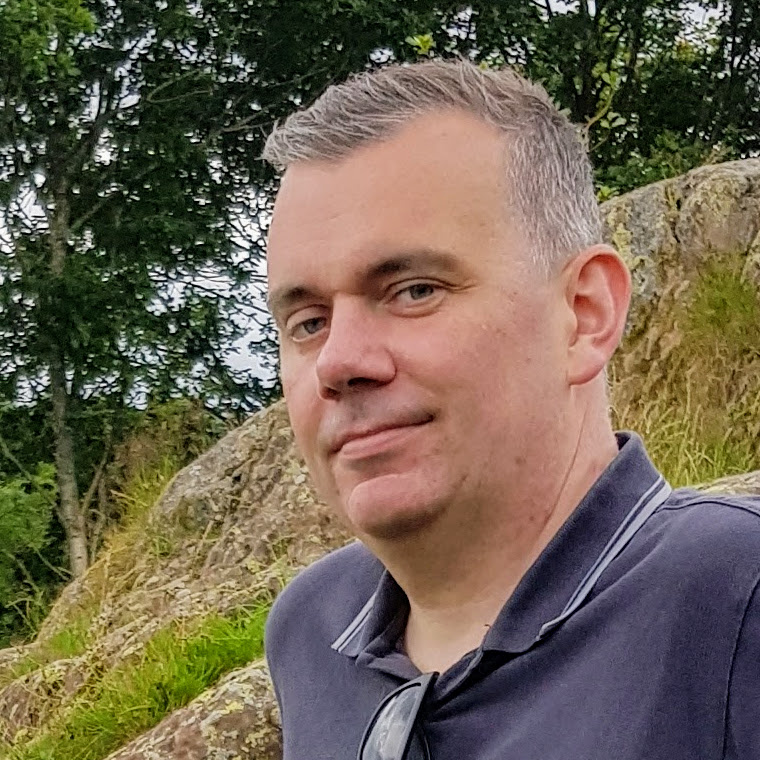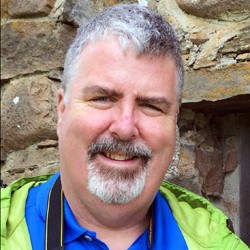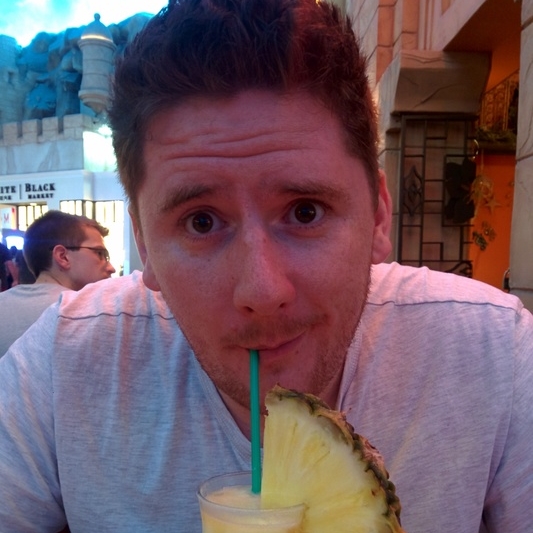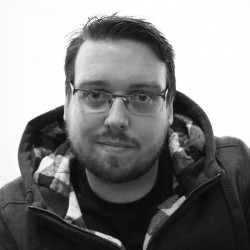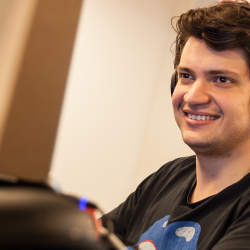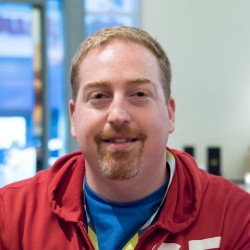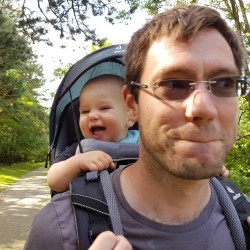Speakers
Keynote Speakers
Session Speakers
Keynote Speakers
Josh Holmes
Josh is a passionate soul who gets problems solved with deep fried awesomeness. Currently employed by Microsoft, he is managing a team of passionate and deep technical folks. Their mission is to "do epic shit" which is just as nebulous as it sounds. They work with companies from small startups to fortune 10 companies and help them with their biggest innovations, then they open source all the code that they write. It really is an awesome mission and amazing team.
Rise of the Machines
Machines are learning at an incredible rate and the pace is only accelerating. It used to be the case that ML/AI were the realm of data scientists in their own little ivory tower with their own language, processes and more. But we no longer have that luxury as ML is permeating every aspect of software. In some cases this is obvious as ML is the primary function of the application such as Credit Scoring but less obvious in the case of things like using ML to back spell check and grammar in word processing. In this dive into machine learning, we will distill the language, process, capabilities and techniques of machine learning so that you can understand and communicate with data scientists.
Watch the talkMeri Williams
Meri is a geek, a manager, and a manager of geeks. She's a CTO, delighted to be leading the tech team at MOO, and also runs ChromeRose, a micro-consultancy which helps digital & technical teams be brilliant.
She has had a career spanning development, programme & product management and more recently engineering & operations leadership. She’s led teams ranging in size from 30 to 300, mostly with people spread across the world, in a range of organisations from Procter & Gamble, to startups, to the Government Digital Service.
Creating space to be awesome
Bringing agile approaches into how we manage people and lead teams can have wonderful, far-reaching impact. How do we get the most out of these new ways of working and also ensure that we create an inclusive environment where all types of people can be successful? In this session we’ll take a closer look at the science behind great people management, to figure out how to bring these together and craft space for everyone to be awesome.
Watch the talkSession Speakers
Adam Culp
Adam Culp (@AdamCulp) a Zend consultant at Rogue Wave Software, is passionate about developing with PHP and contributes to many open source projects. He organizes the SunshinePHP Developer Conference and the South Florida PHP Users Group (SoFloPHP) where he enjoys helping others write good code, implement standards, and refactor efficiently. He is a Zend Certified PHP engineer, is a voting member of the PHP-Fig, and holds a seat on the Zend Certification Advisory Board. You can also find him on his Run Geek Radio podcast and GeekyBoy technical blog. When he is not coding or contributing to various developer communities, he can be found hiking around the U.S. National Parks, teaching judo, or long distance (ultra) running.
Clean Application Development
We all face a daily battle to write good code for ourselves and others, deliver finished applications fast to satisfy business, and ensure everything is properly tested to prevent end-user fails. In this talk we will discuss what “clean application development” is, and how it can help us win those battles. The talk will provide practical and usable examples to, integrate into your workflow, and continue to grow into good habits.
Watch the talkRick Kuipers
I'm a developer at Enrise, meetup organizer for PHPAmersfoort and international speaker who's eager to learn from others. Ever since my first conference I've been hooked on getting involved with the community. I love meeting people that inspire me and I'm fuelled by challenges along the way.
The Science of Code Reviews
We all make mistakes, as much as we try to write flawless code, every now and then an error slips through. In order to reduce this number we do code reviews to ensure the code meets certain standards and to see if the feature was properly implemented. But how do you do a good code review? How do you handle technical discussions? How do you keep your reviews focused and your discussions relevant? In this talk I would like to show you how you can do proper code reviews, what to look out for when doing them, how to give feedback to the developer and a bunch of other tips to improve this process.
Watch the talkChristian Lück
Christian Lück is a software engineer with a Master's degree in Information Systems Engineering and over a decade of experience with PHP, both commercially and as a regular contributor and maintainer of quite a few open source projects. But most importantly, he's always been passionate about pushing the limits and thinking outside the box. In fact, he's so passionate about this that he just quit his regular job in order to better focus on some thrilling things ahead :-)
Pushing the Limits of PHP with ReactPHP
It's 2017 and times have changed – yet PHP is still most often associated with your average product catalog or blogging platform. In this talk you will learn that PHP's huge ecosystem has way more to offer and PHP is not inferior at all to its evil cousin Node.js.
You will learn about the core concepts of async PHP and why you too should care about ReactPHP being a real thing. The talk has a strong focus on sparking the idea that PHP can be way faster and more versatile than you probably thought. Bring along an open mind and through lots of examples and demos learn why what sounds crazy at first might soon be a valuable addition in your toolbox.
Ciaran McNulty
Ciaran helps teams at all levels of ability improve via training and coaching. He has been a PHP professional since the late 90s and is passionate about TDD, BDD and Agile methodologies. He is lead maintainer of PhpSpec, a unit level BDD tool.
Behat Best Practices
Behat is widely used as part of a Behaviour Driven Development lifecycle, but it's also widely misused.
In this talk Ciaran will explain what BDD and Behat involve, and show the best practices including writing good scenarios, driving service development from scenarios, and techniques for fast UI testing.
Craig McCreath
Craig is a senior developer at mtc, based in Dundee, where he is responsible for managing their latest products and technologies alongside mentoring others. With extensive experience building bespoke applications for a wide range of clients, he frequently embraces new approaches and technology to build better solutions.
Refactoring Large Legacy Applications with Laravel
You've been given the task of refactoring that legacy app, so what are you going to do to make sure you're leaving something better? How are you going to tackle something made over the years with features built and understood by those who’ve left and live in infamy? In this talk we'll look at different techniques you can take to overhaul legacy applications. We'll work from the ground up with planning, production, and aftercare: focusing on 3 different approaches with Laravel you can take depending on your time, budget, and needs so you'll end up with a legacy to be proud of.
Watch the talkDave Stokes
Dave Stokes is a MySQL Community Manager for Oracle. Previously he was the MySQL Certification Manager for MySQL AB and SUN. He has worked for companies ranging alphabetically from the American Heart Association to Xerox and work ranging from Anti-submarine warfare to web developer. He resides in Texas and feels the biggest draw back to cloud computing is the inability to perform percussive maintenance on the servers.
MySQL 8 -- A New Beginning
MySQL 5.7 has been the best received version of MySQL to date. But several legacy issues have needed correction for a long time and are now being fixed. MySQL 8 will have a true data dictionary (no more .frm, .myd, or other table with metadata) that will let you have millions of tables within a databases. The default character set will be UTF8MB4 with multi plane support for thinks like CJK support and emojis. Plus you will get invisible indexes, roles, windowing functions plus CTEs, and big improvements in the optimizer. histograms for the Performance Schema, and more. Plus learn how to test MySQL 8 from a container before you need to upgrade.
Watch the talkDavid McKay
David McKay is a software and technology professional, born & bred in Glasgow, Scotland.
As a serial user group organiser, organising Docker Glasgow, Cloud Native Glasgow, DevOps Glasgow and Pair Programming Glasgow, David is always searching for new and creative ways to share knowledge with others.
Oh, and he quite likes domain-driven design, micro-services and clean code.
What even is "Cloud Native"?
The Cloud Native Computing Foundation, founded by The Linux Foundation, currently oversee's the guidance of Kubernetes, Prometheus, OpenTracing, Fluentd, and more. The Cloud Native Computing Foundation describes being "Cloud Native" as three major components:
The Cloud Native Computing Foundation, the organisation currently governing Kubernetes, Prometheus, OpenTracing, and more; describe the three goals of "Cloud Native" applications as:
Containerized
Each part (applications, processes, etc) is packaged in its own container. This facilitates reproducibility, transparency, and resource isolation.
Dynamically orchestrated
Containers are actively scheduled and managed to optimize resource utilization.
Microservices oriented
Applications are segmented into microservices. This significantly increases the overall agility and maintainability of applications.
In this talk, I will guide you towards taking your application cloud native, utilising the software available to us today, from the CNCF, and others, covering containers, tracing, logging and service discovery ... as well as the dreaded: "What actually is a micro-service?"
Matt Brunt
Matt Brunt is a Senior Software Engineer with Viva IT where he leads and mentors a team of developers. Helping them to learn and grow into their full potential.
In his spare time, he’s an organiser for the PHP East Midlands user group, and the PHP East Midlands yearly Unconference. When not tinkering with code he can be found reading comics, fighting monsters in dungeons and dragons, or drinking tea and eating jaffa-cakes.
Content Security Policies: Let's Break Stuff
Content Security Policies are another tool we should have in our security toolbelt to help protect users of our sites. In this session I’ll cover what they are, why they’re needed, how they work and the limitations on what they can & cannot do to protect users.
I’ll demo attacks a CSP will block, break things, show what the different CSP directives & options will do and introduce some of the tools available to help with implementing a CSP on your sites!
Watch the talkRenato Mefi
Renato is a developer who loves Linux, web and beautiful code, tries to mix technologies with some inspiration during his work in order to have creative and reliable solutions. Also, thinks the eclectic interest is a must have to be able to provide those solutions.
GraphQL is right in front of us, let's do it!
"GraphQL represents a massive leap forward for API development." says GitHub. What can we do with it in PHP? It turns out to be not that hard. In this talk I will present how you can make this happen using PHP with Symfony backed by the current available libraries, while also taking some time to introduce you to the concept behind it and what could be the advantages for your project.
Watch the talkSebastian Heuer
Sebastian Heuer plans and writes software for the web since the early 2000s. He focusses on clean software architectures and high-quality, easy to understand code. Apart from his position as Developer Advocate at kartenmacherei.de, he engages in several open-source projects (like https://phar.io) and helps teams to write solid and maintainable software.
The Myth of untestable Code
Contrary to popular belief, no code is untestable. Sure, writing unit tests for well-crafted code that follows the SOLID principles is easy. But what about legacy code residing in some god class with implicit dependencies and no separation of concerns? We will show you that it is possible to write tests for even the worst code by explaining the why, the what, the how, and the when of software testing while looking at real-world examples.
Watch the talkTerrence Ryan
Terry Ryan is a Developer Advocate for the Google Cloud Platform team. He has 15 years of experience working with the web - both front end and back. He is passionate about web standards and wants to bring web developers to the Google Cloud Platform. Before Google, he worked for Adobe and the Wharton School of Business.
He also wrote Driving Technical Change for Pragmatic Bookshelf, a book that arms technology professionals with the tools to convince reluctant co-workers to adopt new tools and technology.
Containing Chaos with Kubernetes
Okay, you've made the move to containers and can now write Dockerfiles for everything. How do you manage all of those containers?. Have you found that you traded managing individual machines for managing individual containers?
Kubernetes, an Open Source container orchestration engine, can be your answer. We'll explore Kubernetes and see how you can use it to run massive collections of containers that fix their own problems and allow you to move your setup wherever you need to be.
Watch the talkThomas Shone
South African lost in Amsterdam, he dabbles in security and have been involved in vulnerability disclosures with 3 different credit card processors (only one of them sent legal threats). Nowadays he spend most of his time now helping grow other developers at Booking.com.
Security Theatre
This is not your normal security talk. Sure we talk about secure communication and the importance of hashing and encrypting (and why rolling your own is never a solution). We might even get frisky and cover some more interesting topics like true randomness, timed attacks and social engineering.
But what we're hear to learn about is the state of online security. Based on the results from a 4 year research project to see just how vulnerable the average website is. Theodore Sturgeon famously said 90% of everything is crud, we'll get to see just how close we come to that number. So if you're ready to see how scary the dark depths of security can be and just how scary it is when you look up and see all the leaky boats above us is, this is for you.
Watch the talk

